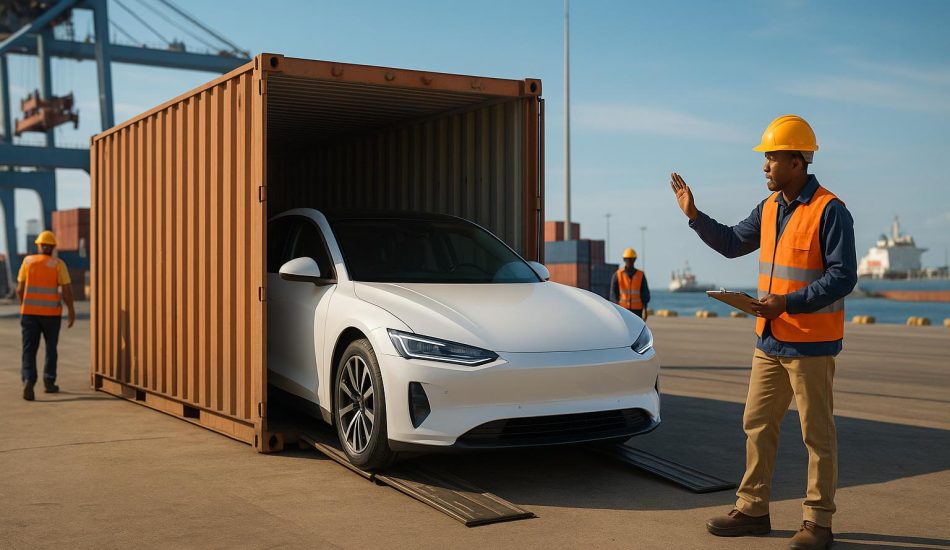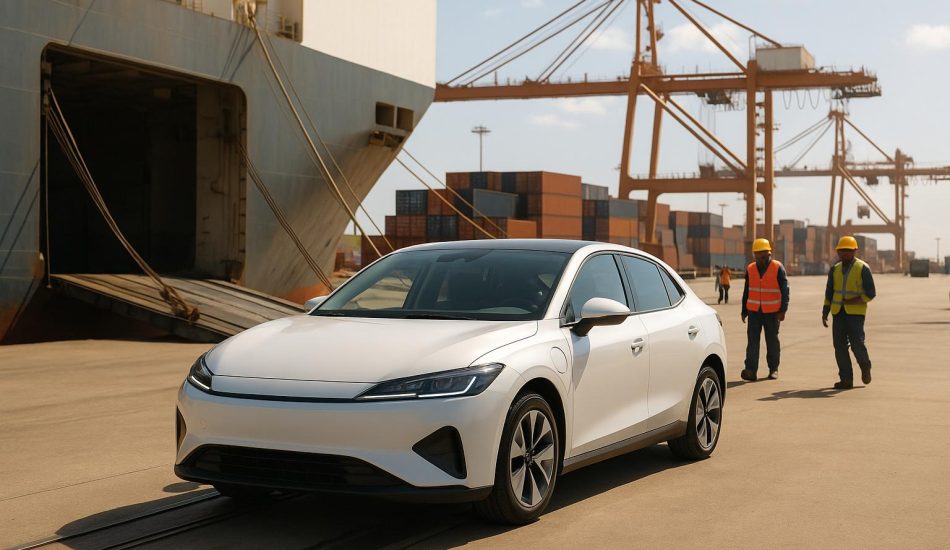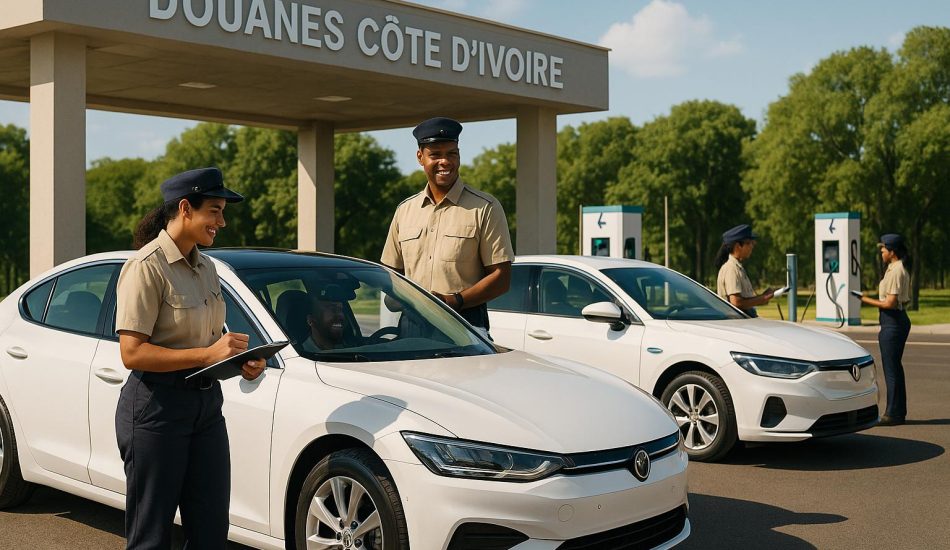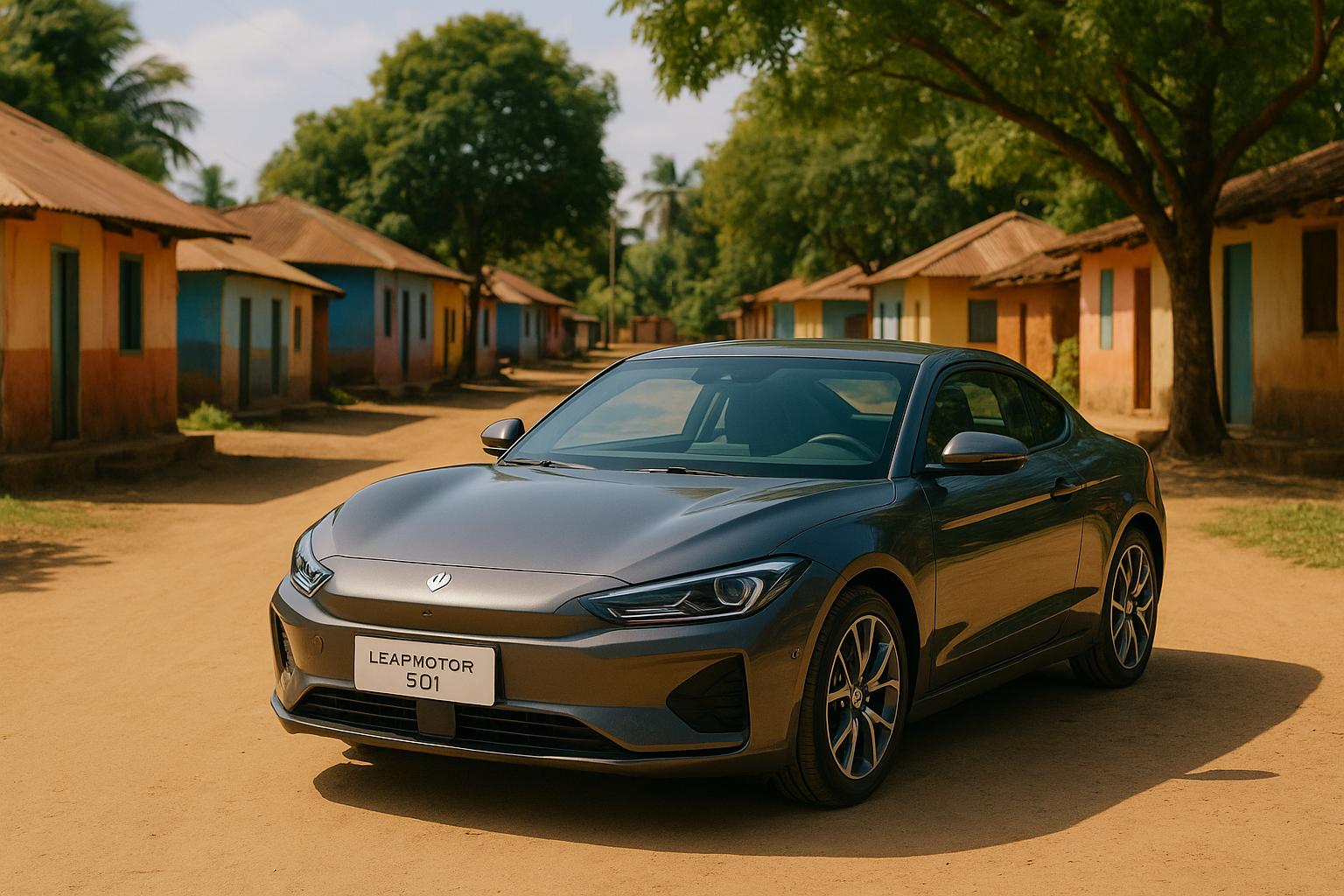
The Leapmotor S01, a small electric vehicle from China, presents a budget-friendly option for urban drivers in Africa. However, its discontinued status since 2022 complicates ownership. While it offers a low initial price, challenges like limited charging infrastructure, high import taxes, and unreliable service networks make it less practical for many buyers. Early reliability issues, such as software faults and battery concerns, further raise doubts about its performance on Africa’s diverse roads. For city residents with access to charging and maintenance, it may work, but rural users face significant hurdles. Carefully weigh these factors before considering the S01.
The Leap Motors S01 Is An Affordable Electric (Kinda) Sports Car
Performance and Specs
The Leapmotor S01, a compact electric vehicle, was introduced with the aim of offering better performance and efficiency compared to larger SUVs at the time of its launch. However, the available data on its battery, motor, and charging capabilities is inconsistent, making it difficult to fully evaluate its potential. Let’s take a closer look at how the S01 performs, especially under demanding African driving conditions.
Battery and Range
The S01 comes in several configurations, but details about its battery capacity and range are inconsistent. Like most electric vehicles, its actual range can vary significantly depending on local factors. For instance, steep hills and rough, unpaved roads – common in many parts of Africa – are likely to reduce its effective range. Unfortunately, the lack of detailed information on its charging performance adds to the uncertainty about its practicality in such environments.
Motor and Speed
Equipped with a single electric motor designed to handle both urban and highway driving, the S01 initially faced some serious reliability challenges. Early models were plagued by issues such as system screen blackouts, overheating alarms during normal charging, and noticeable vibrations in the car’s body. These problems were significant enough to prompt Leapmotor to issue recalls for some S01 models due to software-related faults. These reliability concerns raise questions about how well the vehicle can handle the rugged and varied road conditions often encountered in Africa.
Energy Use and Charging
The S01’s compact design is intended to promote efficient energy use, but detailed information about its energy consumption and charging capabilities remains scarce. While standard AC charging options are available, there’s little documentation on its fast-charging capabilities. These gaps in technical data, combined with earlier reliability issues, have contributed to doubts about the S01’s ability to perform effectively in challenging environments like the African market. This lack of confidence underscores the importance of addressing these shortcomings to meet the demands of such regions.
Features and Tech
The exact technology package for the S01 isn’t fully detailed, so potential buyers should double-check specific features to understand how well it performs in their region. Here’s an overview of what we know about self-driving capabilities, interior design, and safety systems.
Self-Driving Features
Details about driver assistance and autonomous features are currently unavailable. To avoid any surprises, it’s best to confirm these directly with the manufacturer or dealership before making a decision.
Interior and Comfort
Information about the S01’s interior – like passenger space, climate control, and infotainment systems – is sparse. This lack of detail makes it harder to judge how well the car might handle long road trips or adapt to the diverse weather conditions in African regions.
Safety Systems
While it’s reasonable to expect modern safety essentials like airbags, electronic stability control, and anti-lock brakes, specifics about the S01’s safety features haven’t been disclosed. If you’re considering this vehicle, it’s crucial to verify its safety credentials, especially if you’ll be driving on rough or unpredictable roads.
sbb-itb-99e19e3
Fit for African Markets
The Leapmotor S01 faces a tough road in African markets, primarily because it was discontinued in 2022. This raises concerns about the availability of parts, service support, and whether it’s a practical choice for African buyers in the long run. Let’s break down its market fit by looking at pricing, road performance, and charging infrastructure.
Price and Affordability
Leapmotor is known for offering budget-friendly vehicles globally, but the S01’s discontinuation makes its pricing less relevant for buyers in 2025. That said, affordability in electric vehicles (EVs) is about more than just the sticker price – buyers also weigh aftersales service and long-term support, which are critical in Africa.
EVs generally cost more upfront than gasoline-powered cars, largely due to the expense of battery packs. For example, the Vauxhall Corsa-e costs about $6,500 more than its gasoline version (roughly £5,000). However, battery costs have dropped significantly over the years. While batteries once made up two-thirds of an EV’s price, they now account for only 30%. Lower running costs – thanks to cheaper electricity, reduced maintenance needs, and possible tax incentives – can make EVs appealing, especially nearly-new models that have already absorbed steep depreciation (up to 50% in the first year). This could be a key selling point in price-sensitive African markets.
Road Conditions
When it comes to road performance, the S01’s ability to handle Africa’s diverse terrain remains uncertain. While its compact, city-friendly design might work well on smooth urban highways in cities like Lagos or Nairobi, rural areas present a different challenge. Rough roads, steep inclines, and limited infrastructure demand vehicles with solid ground clearance and durable construction. Without detailed specs on the S01’s suspension or build quality, it’s hard to say how it would perform in these tougher conditions.
Charging Network in Africa
Africa’s EV charging infrastructure is still in its early stages, with most stations located in countries like South Africa and Morocco or in select urban areas. For many regions, home charging is the primary option, but this depends on having a reliable electricity supply – something that’s not always guaranteed in rural areas.
The recent partnership between Stellantis and Leapmotor could signal a push to expand Leapmotor’s footprint in Africa, potentially improving charging and service networks. However, this collaboration focuses on newer Leapmotor models, leaving buyers of the discontinued S01 without clear support. Right now, EV adoption in Africa is mostly limited to early adopters in well-connected cities. Broader adoption remains a challenge, largely due to the lack of infrastructure outside urban hubs.
Ownership Challenges
After evaluating the performance and market fit of the Leapmotor S01, ownership hurdles emerge as a key factor in determining its appeal in Africa. These challenges include limited local support, complicated import processes, and financing obstacles – all of which drive up overall costs.
Service and Parts
One major issue is the lack of access to skilled technicians and spare parts. Africa’s EV service infrastructure is still developing, which can lead to extended repair times and logistical headaches. This limited support network adds to the already complex process of owning and maintaining the S01.
Import Rules and Taxes
Bringing the Leapmotor S01 into Africa introduces another layer of difficulty. Importing the vehicle often involves high duties, taxes, and extensive paperwork, such as certificates of origin and safety compliance. Many buyers may need to rely on customs brokers to navigate these requirements. On top of that, currency fluctuations can make the process even more expensive.
Support and Financing
Financing the S01 is no less challenging. Uncertain resale values and limited warranty options can lead to higher insurance premiums and more frequent out-of-pocket expenses for repairs. These financial barriers make owning the vehicle less accessible to many potential buyers in the region.
Final Verdict: Leapmotor S01 for Africa
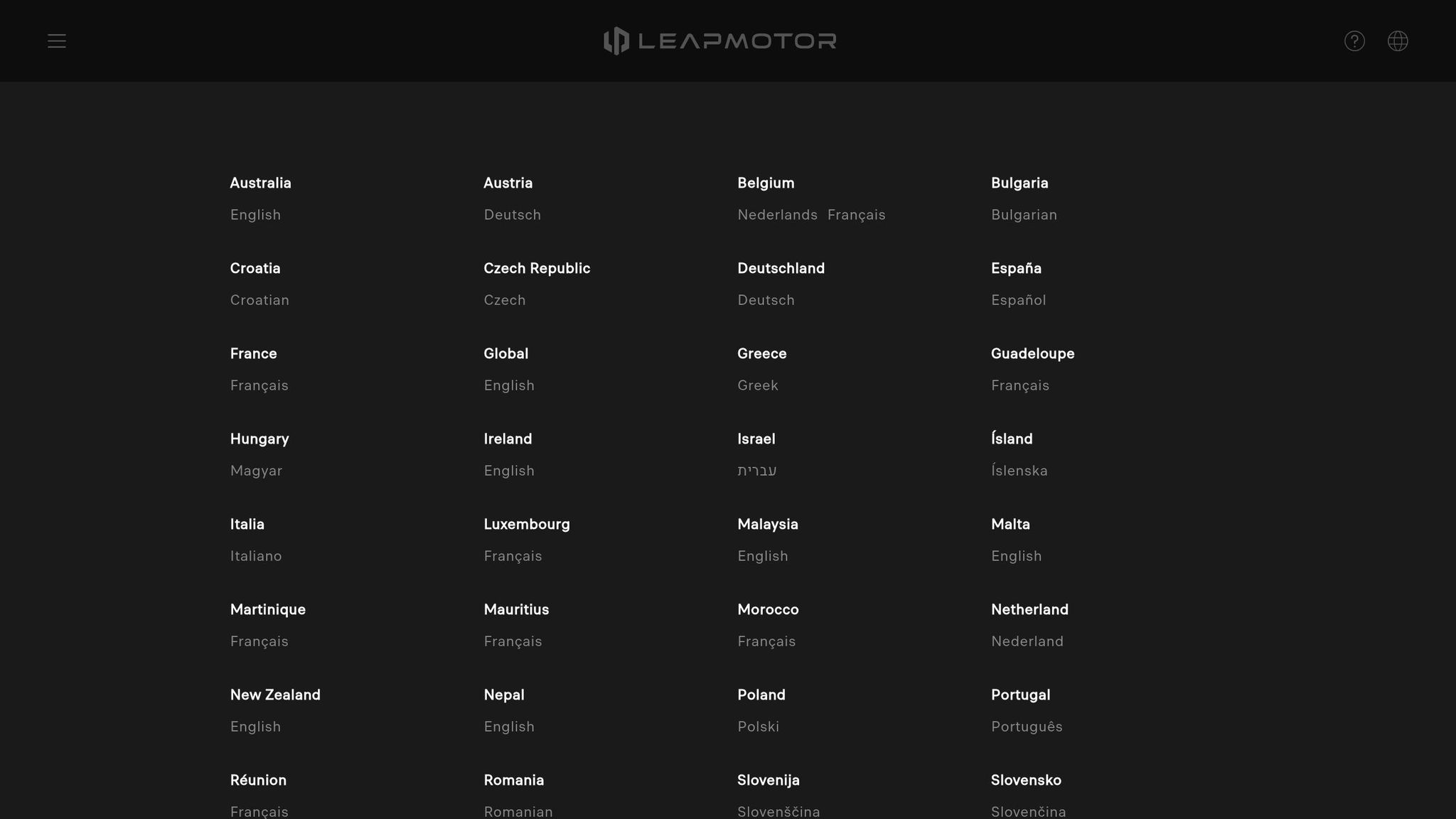
The Leapmotor S01 offers an intriguing option for those in Africa seeking an affordable electric vehicle. At first glance, its price tag might seem appealing, but the reality of ownership costs paints a more complicated picture, as outlined in this review.
Key challenges include hefty import duties, fluctuating currencies, and taxes that can push the total cost far beyond the advertised price. Additionally, the lack of a local dealership network and reliable service options raises questions about long-term maintenance. For those living outside major cities, the limited availability of charging stations only adds to the difficulty of daily use.
For urban buyers with access to charging infrastructure and maintenance options, the S01 could be a practical choice. However, for those in rural areas, the obstacles may outweigh the benefits of its relatively low upfront cost. Prospective buyers should carefully consider these factors to determine if the S01 aligns with their needs in Africa’s varied market landscape.
FAQs
What challenges might African owners face with the Leapmotor S01, considering it’s no longer in production?
One of the biggest hurdles for African owners of the Leapmotor S01 is the scarcity of replacement parts and servicing options. Since this model is no longer being produced and Leapmotor is still working on expanding its global footprint, getting the necessary components for repairs can take a lot of time and may come with a hefty price tag.
On top of that, many areas in Africa lack a well-developed EV infrastructure. This means locating compatible charging stations or technicians with the right expertise can be a real challenge. Together, these issues could make owning the Leapmotor S01 a less practical choice in the long run for drivers in the region.
Does the lack of detailed specifications for the Leapmotor S01 affect its performance on African roads?
The lack of detailed specifications for the Leapmotor S01 makes it tough to evaluate how well it might perform on African roads. Key factors like ground clearance, battery range, and overall durability are crucial for handling the region’s varied terrains and infrastructure. Without this information, it’s harder for potential buyers to judge whether the car fits their requirements.
That said, the article points out that the Leapmotor S01 could still attract attention, thanks to its affordability and the increasing interest in electric vehicles. Its success, however, will depend on how well it can meet the specific challenges of the African market.
How can the challenges of limited charging stations and service networks for EVs like the Leapmotor S01 in Africa be addressed?
Addressing the hurdles of limited charging infrastructure and service networks for EVs in Africa calls for creative and practical approaches. One solution is incorporating range-extending technology. This involves using a small gasoline generator alongside the battery, which can ease range anxiety and reduce the dependence on charging stations, especially in remote or less accessible areas.
Another approach is building strategic partnerships with established automotive companies. These alliances can play a crucial role in expanding service networks and speeding up the development of EV-specific infrastructure. Such collaborations also make it easier to introduce EVs in emerging markets, improving access to spare parts and maintenance services for models like the Leapmotor S01.


